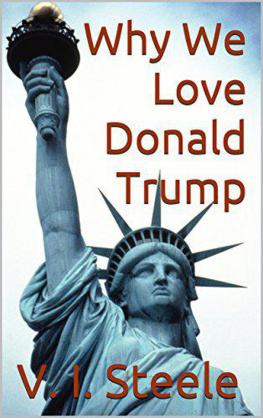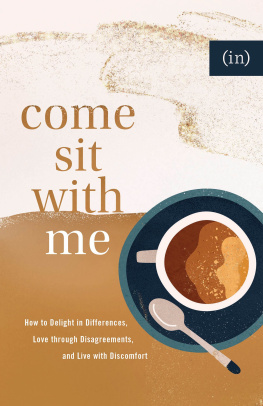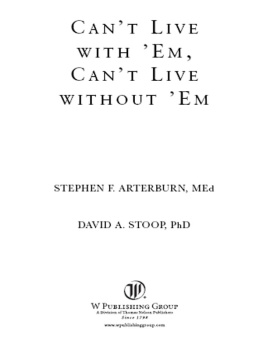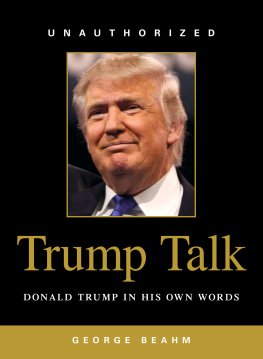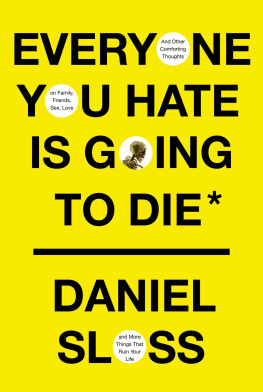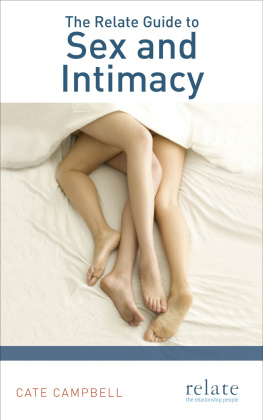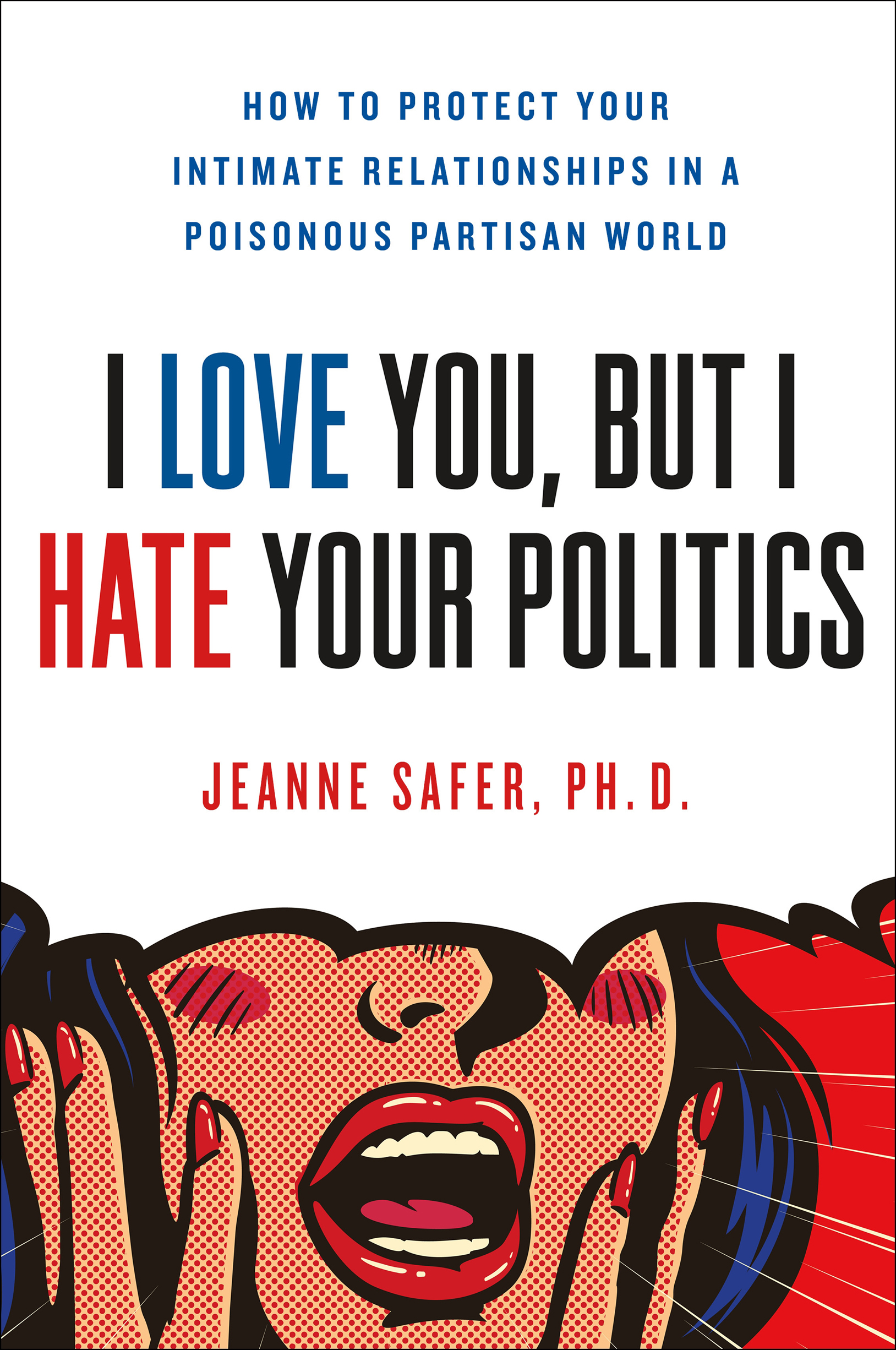The author and publisher have provided this e-book to you for your personal use only. You may not make this e-book publicly available in any way. Copyright infringement is against the law. If you believe the copy of this e-book you are reading infringes on the authors copyright, please notify the publisher at: us.macmillanusa.com/piracy.
We love the things we love for what they are.
Intimate relationships in America are in crisis as never before, and political feuds are the reason.
A Wall Street Journal/NBC News postelection poll reported that close to one in three Americans had had a heated argument with a friend or family member who voted for the other sidethe kind of arguments that fester.
Family gatherings have become minefields. A recent Quinnipiac poll showed that over two-thirds of respondents, ages eighteen to sixty-five-plus, were dreading political disputes on holidays.
An article in Science revealed that families with political conflicts are cutting their Thanksgiving meal short by up to an hour to avoid blow-ups around the turkey; they know no other way to prevent ugly confrontations.
In November 2018, The New York Times ran an article on safe topics to discuss this holiday season, and Huffington Post offered 17 Thanksgiving Conversation Topics That Arent About Politics. Evidently we cant think of any on our own.
Unfriending on social media, the ultimate dis, has reached epidemic proportions. Pew Research polls reported that 27 percent of respondents had blocked or unfriended someone just before the 2016 election. Those numbers continue to escalate ominously; erasing a relationship has become an acceptable way to disagree.
Gone are the days when couples could simply avoid areas of conflict over public policy, as my own parents did (my father was an Eisenhower Republican and my mother a liberal Democrat); I never heard them discuss, much less quarrel about, politics. But in the sixties, the era of Vietnam, politics invaded every crevice of private life. The Bush era, the Iraq War, and fights over Supreme Court nominees escalated the right/left conflict, and dialogue across the aisle became rarer and rarer. Now, in the Trump era, it has disappeared entirely: the political has become the personal, making lovers and friends with different party affiliations a vanishing breed.
A major culprit, an ominous new wrinkle in the current crisis, is the partisan media, including the degraded state of discourse on cable and talk radio, the twenty-four-hour news cycle, and, above all, the explosion of social media that has invaded every nook and cranny of our craniums. Like children imitating their parents, people mimic what they see and hear onscreen and online, to the detriment of any kind of dialogue. They have become so unused to actual conversation with the other side that they can only deliver partisan diatribes. You voted for that monster! was the opening conversational gambit of a progressive woman interview subject of mine at a romantic dinner her conservative boyfriend had made for her. She was mimicking her friends and her news sources.
Online hostility gives people a spurious sense of power over those they cannot convince. Several people I interviewed had actually been unfriended on social media by their own parents, ended romances (in one case, broke an engagement), or unfriended their siblings or erstwhile close companions in reaction to online content they deemed offensive. They never even tried to work it out. Such a reaction to differences of opinion is insane but has become disturbingly normalized, and almost automatic. One-half of my interview subjects reported unfriending or being unfriended over politicsand only one of them re-friended the person and apologized to him. Broken bonds are tough to repair, and it may not be possible to re-friend someone even if you have regrets or second thoughts.
The impact of this poisonous political climate on our bonds with spouses, lovers, family, and friendsabetted by the ranting 24/7 news outletsis disastrous and tragic, and it is continuing to escalate with no end in sight. Our social circles have become so insulated and homogeneous that many people, particularly younger people, rarely venture outside the group of the like-minded and have virtually no voluntary contact with anyone with whom they disagree. No wonder we demonize the opposition.
Researchers from Stanford University reported that intermarriage across party lines had plummeted to just 9 percent from 20 percent in the late twentieth century. No wonder so many mixed-political couples feel isolated; they have so few peers, and their friends cannot relate to them.
An article in The Journal of Politics in 2011 reported that parents worry more about their children marrying across party lines than across racial or religious ones, and that political compatibility has replaced even physical attractiveness as the fundamental quality to seek in a potential mate.
Politics is also tearing established couples apart. According to Wakefield Research, one in ten couples is ending their relationship because of battles over politicsa phenomenon that has been labeled the Trump divorce. For younger millennials, the appalling statistic is 22 percent.
And there is no more dangerous indicator of how serious a threat political conflicts are to love and civility than this: Wakefield Research found that 20 percent of couples are now fighting more ferociously and frequently over Trumps policies than about money, the most contentious marital issue of all time.
Even psychotherapy, the last bastion of the personal, has become politicized; in over four decades in practice, Ive never seen anything like it. A patient of mine seriously considered terminating our long and fruitful relationship because I questioned his desperate plan to move to Canada after Trump won the election; we worked it out, and he decided to stay put, but the intensity of his outrage and sense of betrayal at my failure to applaud his schemewhich was related to his dealings with his unsupportive, pro-Trump parentswas disconcerting.
These irreparable rifts are part of virtually everyones experience, and the list of casualties keeps growing.
As a psychoanalyst and relationship specialist in practice for forty-five years, and a liberal Democrat married for thirty-nine years to a senior editor at National Review, the leading conservative journal of opinion, Ive been writing about navigating this divide in my own life for decades. My husband and I have also written about it together and have appeared jointly in the media to discuss our surprising relationship. People are often astonished that the two of us have managed to accomplish a feat that many believe is impossible.
I also host a podcast entitled I Love You, but I HATE Your Politics on which I speak to a fascinating array of mixed-political couples of all sorts, so others in this situation can feel that they have peers.
Since the 2016 presidential election, I have become the go-to expert on how to make a mixed-political relationship flourish. Readers and listeners have deluged me with desperate requests for advice on how to have a political disagreement with an intimate partner without mutually assured destruction. Their predicaments run the gamut from touching and amusing to almost unbearably painful. Among the people who contacted me: a man attached both to his comic decal of Trump urinating on Hillary Clinton and to his liberal girlfriend who demanded he remove it from his windshield; a liberal son who feared that his conservative father would physically attack him because of their political differences; a conservative brother who worried that his uncontrollable political rants were destroying his relationship with his beloved left-leaning sister, the only relative who had yet to unfriend him.


